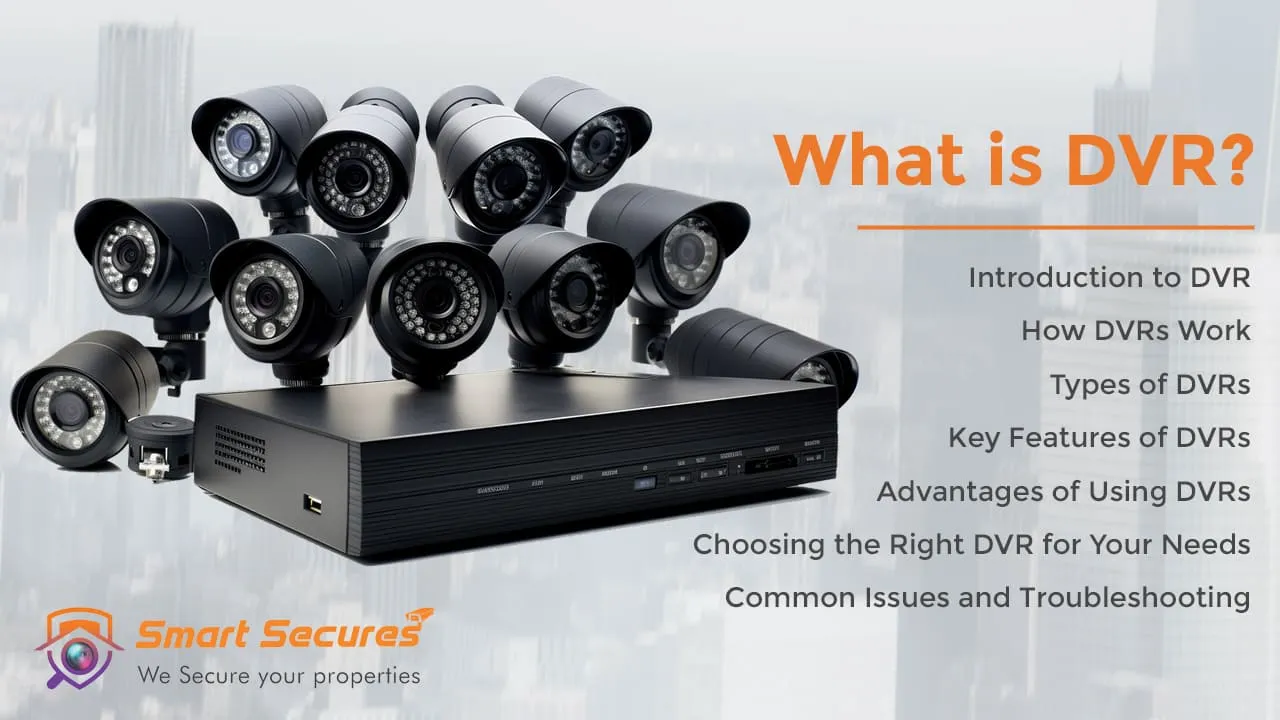Home > Blog > What is DVR?
In the world of modern security, surveillance is crucial for businesses, residential properties, and industrial facilities.

In modern security, surveillance is crucial for businesses, residential properties, and industrial facilities. A DVR, or digital video recorder, is important for managing video from security cameras. It ensures clear recordings and easy access to stored footage.
In this blog, we will explain what a DVR is, its functionality, and how it works, and compare it with NVRs (Network Video Recorders). It doesn't matter if you run a corporate office, manage commercial properties, or protect residential areas. You need to know how to add a DVR to your security system.
A Digital Video Recorder (DVR) is a device that records video from an analog security camera. It saves the footage on a hard drive. People primarily use it in surveillance systems, especially in business, residential, and industrial environments.
DVRs are better than older systems that use tapes. They have features like digital recording, playback, and remote access to saved videos.
A DVR captures video signals from security cameras. These are usually analog cameras.
It then converts the video into a digital format and stores it on a hard drive. This allows users to review footage at any time, search specific events, and even export video clips if needed. DVRs also allow multiple camera feeds to be recorded simultaneously, making them perfect for monitoring multiple locations.
A DVR is helpful for security management. It works for small offices, large warehouses, and residential complexes. It has many useful features.
The distinction between DVR and NVR (Network Video Recorder) systems is a common question in the security industry. Despite their use for video footage recording, they differ in their cameras and functions.
Businesses can manage their security footage with DVRs, which are both affordable and effective. Using a DVR system, corporate offices can keep an eye on entranceways, parking lots, and high-traffic areas to ensure a secure environment for employees and visitors.
For commercial properties such as retail stores or shopping centres, a DVR security system helps monitor customer activity, reduce theft, and enhance overall safety. Store managers can access DVRs to review past incidents and provide video evidence whenever necessary.
By installing cameras around entry points, driveways, and other vulnerable areas, homeowners can reap the benefits of DVR for home security. DVR systems provide protection 24/7 and allow residents to watch footage remotely, ensuring peace of mind whether they're at home or away.
DVR systems are a great asset to factories, warehouses, and industrial plants. By using these setups, large areas such as storage units, production lines, and restricted zones can be monitored, with safety protocols being followed and security breaches being recorded.
Whether installing a DVR system for business, residential, or industrial use, the following tips will help optimise its performance:
DVRs
record video from analog or digital cameras, while NVRs are designed for
network cameras and offer advanced networking features.
Yes, many DVR systems offer remote access through internet
connectivity, allowing you to view live or recorded footage from anywhere.
The
recording duration depends on the DVR's storage capacity and the video quality
settings. Larger storage capacities allow for longer recording times.

5,852 reviews